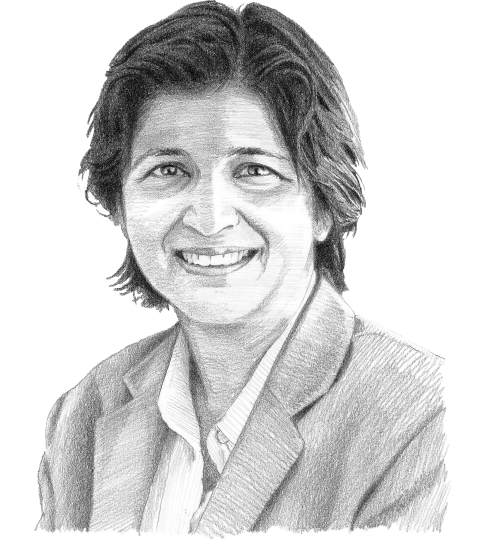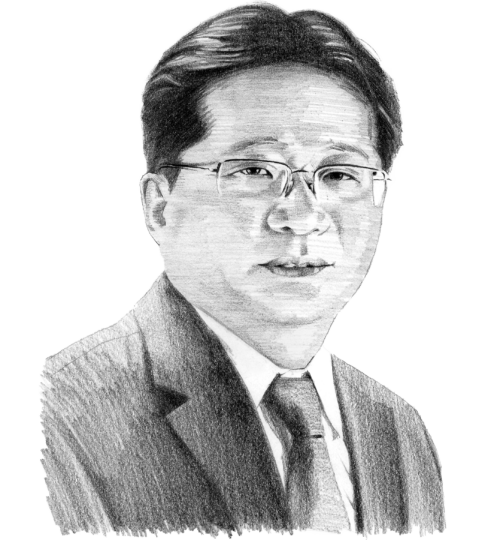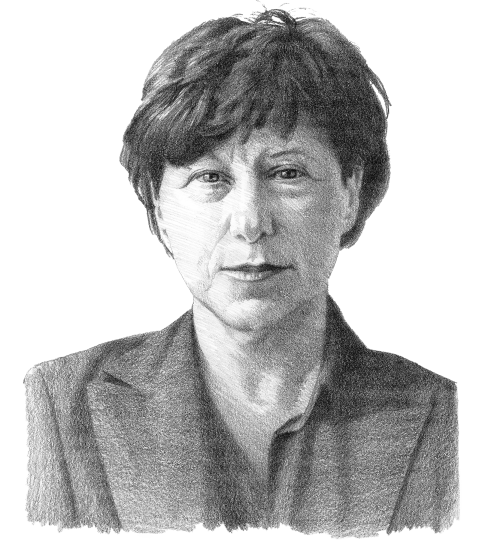National parliaments are the EU’s next rightward battleground
Policy changes stemming from Europe’s growing right will not be felt until after national parliamentary elections in EU member states.

In a nutshell
- National elections may gradually shift the balance of power in the EC
- The EU Parliament’s limited powers make major policy changes unlikely
- Right-wing parties coalescing around common goals but divided on Russia
In June’s elections to the European Parliament (EP), the bloc’s citizens reacted somewhat cautiously to urgent recommendations from established politicians to vote for the European Union and democracy by voting against the right. Voter turnout remained low, at just over 50 percent, as in the previous election of 2019. The right-leaning parties gained ground, and so-called “European issues” were not at the forefront of the election campaigns in any of the 27 member states. It is not in the Parliament but in the nation-states where democratic decision-making really takes place.
The low level of interest in the composition of the EU Parliament and the work of its 705 elected representatives is due to it not being a parliament in the true sense of the word but a permanent assembly with very limited powers. In the EU’s power structure, the Parliament ranks behind the European Council (heads of state and government), which sets the political guidelines, and the European Commission (EC) which, as the executive branch, turns measures decided in the Council into formal legislative proposals and monitors compliance. The Parliament can call on the Commission to submit legislative proposals and is entitled to modify and, if necessary, reject legislation.
However, the Parliament cannot force the EU to change direction. That requires shifts in the Council, whether through changes in the composition of the heads of state and government or existing Council members correcting their course under growing political pressure in their home countries.
EU power brokers holding on
For the time being, there is nothing to suggest that the gains made by right-leaning parties in 14 of the 27 member states have caused the EU’s power cartel – comprised of the European People’s Party, Social Democrats, liberals (Renew Europe) and the Greens/European Free Alliance – to rethink its positions. At the June summit of the seven leading Western industrialized countries (G7) in southern Italy, the big losers of the EU elections – German Chancellor Olaf Scholz and French President Emmanuel Macron – snubbed host Giorgia Meloni, whose mandate had just been boosted by Italian voters in the election to the European Parliament.
Prime Minister Meloni was not invited to the informal meeting with Ursula von der Leyen, where Messrs. Scholz and Macron and others discussed how to guarantee her reelection as the Commission president, even though Ms. von der Leyen was riding on the coattails of Ms. Meloni’s popularity ahead of the election. While still in Italy, Chancellor Scholz announced that he would support the reelection of Ms. von der Leyen only on the condition that she did not form an alliance to the right of the “traditional democratic parties.” It is no secret, asserted Mr. Scholz, that Ms. Meloni belongs to the “extreme right of the political spectrum.”
Changes will be felt after national elections
Far more important than the filling of the top positions in the EU is how subsequent elections to national parliaments will turn out, especially in the three member states that have the greatest weight in the Council: Germany, France and Italy.
It is not in the [European] Parliament but in the nation-states where democratic decision-making really takes place.
Only the ousting of left-wing, left-liberal and green-oriented governments through a right-wing shift in the member states could gradually create more favorable conditions for a pan-European change in the areas that all right-leaning parties, regardless of their other differences – namely relations with Russia – consider the priority.
Priorities of the European right
First and foremost, areas of common interest include security (asylum and migration, internal security and border protection), curbing Islamization, ending multiculturalism and stopping the perceived spread of woke dogma directed against nations, families and religion by the EU and its institutions. Instead, they want to strengthen traditional values and ensure that opinions can be expressed free from the constraints of political correctness.
In terms of economic and social policy, differences across the right-wing spectrum are considerable. Even though one occasionally comes upon classical liberal concepts, statist, mercantilist notions, as well as ideas aimed at social redistribution, generally dominate. There is agreement to reject the Green Deal, the EU energy transition and other policies that they say stand in the way of Europe’s economic recovery. “Sovereignism,” understood as the regaining of national sovereignty, is a core value in the program of all European right-oriented parties.
However, they are up against not only the “traditional democratic parties” mentioned by Mr. Scholz but also relevant provisions of the EU treaties (“ever closer union”), the European Convention on Human Rights and the creative rulings of the European Court of Justice (ECJ). The scope for political decision-making is increasingly being restricted by the constitutional courts, the ECJ and the European Court of Human Rights. The EU’s status quo is therefore protected against fundamental revisions in several ways.
Read more on proposed solutions to what ails Europe
- Italy’s experiment: The Mattei Plan for Africa
- Sweden’s pivotal role in critical materials for Europe
- The EU’s new plan to address irregular migration
National results of elections to the European Parliament
Belgium
The right-wing parties achieved their first major success in Belgium, where balloting to the European Parliament took place at the same time as domestic parliamentary elections. The opposition right-wing parties came in first place. The New Flemish Alliance garnered 17 percent and Vlaams Belang 14 percent of the vote. The liberal Flemish VLD of the incumbent Prime Minister Alexander De Croo only received 5.4 percent. That same evening, Mr. De Croo announced his resignation.
France
By far the most important result of the EU Parliament elections was the political earthquake triggered by the triumph of the National Rally of France, which prompted President Macron to take the bull by the horns and call snap elections to the French parliament. In a survey, 52 percent of voters said that their voting decision in the EU vote was primarily intended to influence national politics, and that they had not considered European issues.
The centrist party grouping around Mr. Macron, Besoin d’Europe, received 14.6 percent, a drop of 8 percent compared to the 2019 EP election. Marine Le Pen’s National Rally, with its lead candidate Jordan Barella, received 31.7 percent, a gain of 8 percent from 2019, and was at near parity with the four-party left-wing alliance that garnered 31.5 percent of the vote, roughly the same level of support it achieved in the previous EU Parliament vote.
The price President Macron will have to pay for this victory is enormous.
Prior to this year’s EU Parliament elections, Ms. Le Pen and Mr. Bardella had moved their party toward the center, and she rejected an offer from Eric Zemmour’s Reconquete, a nationalist party he founded in late 2021, to form a joint French far right bloc. Ms. Le Pen also terminated her cooperation with the Alternative for Germany (AfD), a move that was made easier when the party’s top candidate, Maximilian Krah, made statements trivializing the Nazi Party’s Waffen-SS.
Ms. Le Pen’s distancing herself from antisemitism even convinced Holocaust survivor Serge Klarsfeld, whom Macron had just awarded the Grand Cross of the Legion of Honor for his commitment to fighting right-wing extremism. Mr. Klarsfeld, who is 88 years old, announced that he would vote for the National Rally because, in his view, the greatest danger to Jews today comes not from the national right but from the anti-Israeli and anti-Zionist left.
Ms. Le Pen has condemned Russian aggression against and invasion of Ukraine and changed her previously uncritical stance toward Russian President Vladimir Putin. While she accuses President Macron of wanting to start a war against Russia, she claims to be in favor of supplying Ukraine with “defensive weapons.” However, she still opposes providing long-range missiles to the embattled country. Notably, the Kremlin has still thrown its support behind Ms. Le Pen’s party.
And now that France has held its national parliamentary elections, trends are becoming clearer. In the first round held on June 30, the National Rally’s share of the vote increased to 33.2 percent from 31.4 percent in the European elections. The National Rally was in a right-wing alliance with the Republicans, a center-right party led since December 2022 by Eric Ciotti and previously by Nicolas Sarkozy (2015-2016). This alliance emerged as the strongest force in the second round on July 7 with 37.1 percent. However, the right’s result was not reflected in the distribution of seats in the French parliament due to the country’s majority voting system and to a center-left coalition of President Macron’s supporters, together with the New Popular Front, an alliance of the Greens and other left-wing parties that temporarily buried their differences and ran together. This center-left grouping prevailed and the National Rally came in third place.

However, the price President Macron will have to pay for this victory is enormous. In order to maintain a reasonably stable government, he would have to succeed in splitting the New Popular Front by isolating La France Insoumise, a radical left-wing party led by Jean-Luc Melenchon. Mr. Macron would also need to win over the Socialists and the Greens for a governing coalition. However, all left-wing parties and the trade unions are calling for the withdrawal of Macron’s market-oriented reforms. Any form of center-left cohabitation would significantly reduce the president’s influence in the EU for the rest of his second and final term, which ends in 2027.
The New Popular Front program envisages, among other things, lowering the retirement age to 60, increasing the minimum wage to 1,600 euros, automatically adjusting wages and salaries to inflation, strengthening public services, tax increases and stricter labor market regulation. Implementing this program is estimated to cost 1.5 trillion euros, making it unlikely given the country’s national debt of 110 percent of gross domestic product (GDP) and an economy that has been stagnating for years.
France is threatened with a plunge into uncertainty. While Mr. Macron concludes his term in office, the National Rally can prepare for the direct election of the next president, who will most likely be Marine Le Pen.
Italy
Currently, Giorgia Meloni is the most successful politician of the European right. Among the European heads of government, Ms. Meloni was the shining star of this EU election.
The “right-wing extremist,” as labeled by Mr. Scholz, or “post-fascist,” as she is called in some European media, managed to increase the share of the vote for her Fratelli d’Italia from 26 percent in Italy’s 2022 parliamentary elections to 28.8 percent in the EU elections. The party emerged in 2012 from the Alleanza Nazionale, which, with its successor parties, was part of all of Silvio Berlusconi’s governments from 1994 to 2011.
Under Ms. Meloni’s leadership since 2014, however, the Fratelli d’Italia increasingly positioned itself in the middle, as a center-right party. She has distanced herself from Italian fascism and is emerging as a “transatlanticist” who supports both Ukraine and Israel. At the European level, Ms. Meloni, who has also been President of the European Conservatives and Reformists since 2020, advocates a restructuring of the EU to strengthen nation-states.
Germany
The EU elections ended in a heavy defeat for the parties of Germany’s center-left “traffic light” government coalition. Together, they received only a third of the vote: the Social Democratic Party of Germany (SPD) received 13.9 percent, down 1.9 percent, their worst result ever. The Greens achieved 11.9 percent, which was an 8.6 percent decline, and the Free Democratic Party (FDP) garnered 5.2 percent, a sliver below its previous election results. The center-right Christian Democratic Union of Germany and the Christian Social Union in Bavaria (together the CDU/CSU) came in first with 30 percent, a gain of 1.1 percent. The hard-right, Russia-friendly AfD secured 15.9 percent of the vote, a rise of 4.9 percent from the last election.
Lacking the moderating influence of inclusion in national politics with other parties, the radical currents in the AfD are gaining clout.
The new Sahra Wagenknecht alliance garnered 6.2 percent. It shares the AfD’s pro-Russian stance but, as an independent force, keeps the possibility of cooperation with the CDU/CSU open.
In view of the massive efforts of the traffic light coalition parties, the churches, the trade unions and non-governmental organizations, as well as the mass demonstrations against the AfD in numerous German cities and the media support from the public broadcasters and the left-liberal media, the “fight against the far right” was not very successful.
In September, the state parliaments (regional parliaments) in Saxony, Thuringia and Brandenburg will be reelected, and forecasts predict further gains for the AfD. The next elections to the Bundestag, Germany’s parliament, are due in autumn 2025. While the temperature of opinion in Germany is changing, the traditional parties still want to stick to their previous course.
As the CDU and CSU continue to reject cooperation with the AfD, the “firewall against the right” – the attempt to isolate hard-right parties politically – is likely to remain in place for the foreseeable future. Meanwhile, lacking the moderating influence of inclusion in national politics with other parties, the radical currents in the AfD are gaining clout. Its leadership rejects a “Melonization” or a turnaround as suffered by Ms. Le Pen’s French party.
The AfD maintains its pro-Russian, anti-NATO and anti-U.S. platforms, which isolates it from the other European right-wing parties. Unlike in France and Italy, the fear of being drawn into a war with Russia is pronounced in Germany for geographical and historical reasons. Russian narratives and disinformation are also amplified in German social media. In addition, there is a deep-rooted anti-Americanism throughout the country, especially in the territory of the former East Germany.
Austria
The Freedom Party of Austria (FPO), which caused a scandal in 2019 due to its unsavory cooperation with Russian nationals and is no stranger to shady dealings, and Germany’s AfD see themselves as “sister parties.” They agree not only on the issue of migration, but also on their attitudes toward Russia, Ukraine and NATO. The EU elections in Austria ended with 25.4 percent for the FPO, narrowly ahead of the Austrian People’s Party, with 24.5 percent, and the Social Democratic Party of Austria, with 23.2 percent.
Austria’s next parliamentary elections will take place in September, and forecasts suggest that the FPO will emerge the strongest party. Unlike the AfD, it has been a force firmly anchored in Austrian domestic politics for decades and has worked with both the Social Democrats and the People’s Party in the past. The latter is not fundamentally opposed to a coalition with the Freedom Party, but it makes it a condition that the FPO withdraws its radical party leader Herbert Kickl as a candidate for chancellor.
There is currently nothing to suggest that the FPO will comply with this demand, let alone that Mr. Kickl would renounce the chancellorship of his own accord. If this does not change after the parliamentary elections, a coalition between the People’s Party and the Social Democratic Party is likely to emerge in Austria, possibly including two or three smaller parties.
Scenarios
Likely in the foreseeable future: Business as ususal
Given the balance of power between parties in the European Parliament, the option of trying to maintain a centrist status quo will remain for the foreseeable future, even as further expected gains of the right are taken into account. However, the resulting risks are significant.
There is a possibility that citizens in European countries will become further alienated from politics. There are also threats of a deepening polarization of public opinion, an increase in anti-European and xenophobic tendencies and even social unrest and violent ethnic conflicts.
Possible: Breaking down political “firewalls”
Experience in several countries, including Austria, Italy and most recently France, suggests that right-wing parties become less radicalized when they are taken seriously as a democratic alternative. Behind the firewalls that centrist and left-leaning parties maintain to isolate extreme right parties domestically, however, political extremism is flourishing.
It is an open question whether the quarantine imposed on the right will be lifted. That primarily depends on the EU Parliament’s biggest faction, the European People’s Party. There is currently no indication that it wants to try. The role that moderates from the right, such as Ms. Meloni, play in national and European politics will be influential in deciding if the firewalls remain or are eased.
For industry-specific scenarios and bespoke geopolitical intelligence, contact us and we will provide you with more information about our advisory services.








